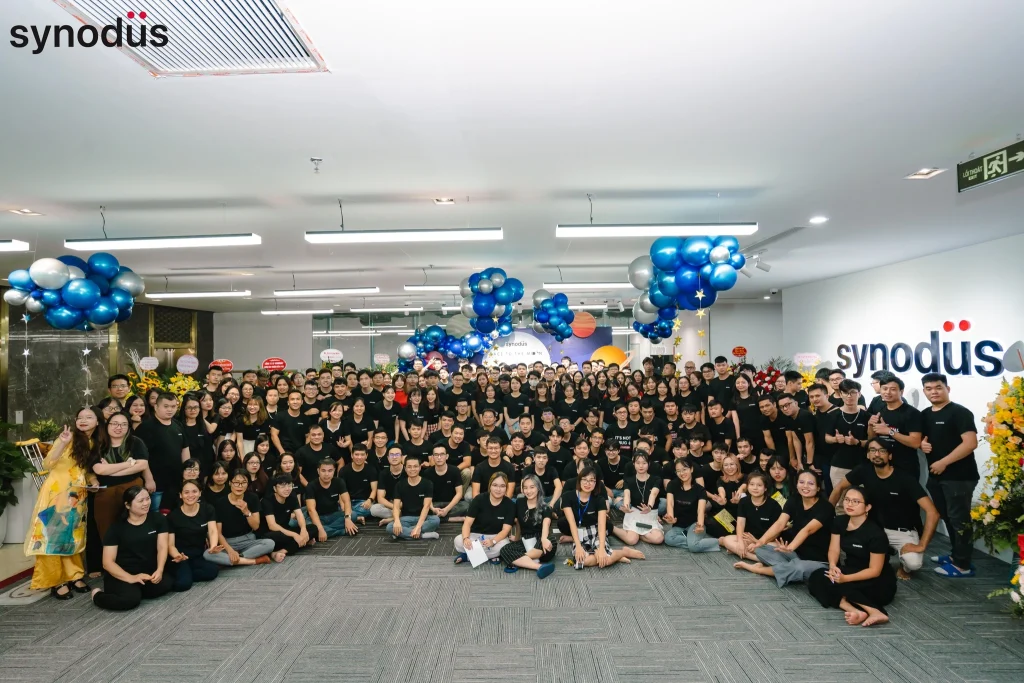This 2026 decision guide helps you assess whether outsourcing is the right fit, what to expect in terms of cost and risk, and how to structure the engagement to support both near-term goals and long-term outcomes.
TL;DR – Executive decision summary
- Outsourcing blockchain development can accelerate delivery in the right context, but it often shifts control and long-term flexibility.
- It works best for early-stage or well-scoped products, where speed outweighs deep customization or governance needs.
- For core or compliance-heavy systems, risks around security, IP ownership, and accountability increase and require closer oversight.
- Cost differences depend more on engagement models than rates, and lower upfront cost often moves risk downstream.
- The real decision is how you define responsibility and ownership before choosing any vendor.
Should you outsource blockchain development?
Outsourcing blockchain development isn’t a default “yes” or “no” decision. It depends on what you’re optimizing for right now – speed, control, cost, or long-term ownership and which trade-offs you’re willing to accept.
Outsourcing tends to make sense when:
- You need to move quickly but lack in-house blockchain expertise
- The scope is clear, or the product is still early enough to adapt
- Blockchain supports the business, rather than defining it
- Ownership, security, and decision boundaries can be set upfront
It’s usually a poor fit when:
- Blockchain is core to your long-term differentiation
- The system is compliance-heavy or highly security-sensitive
- Requirements are unstable or still evolving
- You expect tight, long-term integration with internal teams
Before deciding, it helps to pressure-test one question: Are you trading short-term speed for constraints you’ll regret later or for flexibility you actually need?
In-house vs outsourcing: A decision comparison
Choosing between outsourcing and building in-house is less about which model is “better” and more about what you’re optimizing for at this stage. Each option comes with clear advantages and equally real constraints.
With outsourcing, you gain speed and access to experienced blockchain engineers, often without long hiring cycles. The trade-off is reduced day-to-day control, potential dependency on external teams, and the need for stronger governance to protect IP and security.
With an in-house team, you gain full ownership and long-term control, along with deeper product context over time. The trade-off is slower ramp-up, higher fixed costs, and ongoing hiring and retention risk, especially for specialized blockchain roles.
From a decision standpoint, the difference often looks like this:
| Decision factor | Outsourcing development | In-house development |
|---|---|---|
| Speed to start | High | Low-medium |
| Control & ownership | Medium-low | High |
| Cost structure | Variable | Fixed |
| Security governance | Setup-dependent | Strong |
| Long-term flexibility | Medium | High |
In practice, many teams shift over time – starting with outsourcing to move quickly, then bringing critical capabilities in-house as the product matures.
Common blockchain outsourcing models
When it comes to outsourcing blockchain development, businesses have several options to choose from, including various outsourcing models. These models are similar to those used in software outsourcing and are designed to help businesses achieve their specific goals while minimizing costs and maximizing efficiency.
Staff augmentation model
The staff augmentation model is suitable for businesses that need specific skill sets to complement their in-house team. With this model, the outsourcing company provides additional staff to work on specific projects as needed. This model is particularly useful for companies that want to keep the core development process in-house but need additional help for specific tasks.
Project-based model
The project-based model is suitable for businesses that have a clearly defined project scope and timeline. With this model, the outsourcing company is responsible for delivering the project within the agreed-upon timeline and budget. This model is particularly useful for businesses that want to outsource entire projects and do not have the necessary expertise or resources in-house.
Advantages: This model allows businesses to outsource entire projects without having to worry about managing the project on a day-to-day basis. It also allows businesses to access specialized talent without having to invest in long-term recruitment and training costs.

Dedicated team model
The dedicated team model is suitable for businesses that need a dedicated team to work on a long-term project. With this model, the outsourcing company provides a dedicated team that works exclusively on the client’s project. This model is particularly useful for businesses that want to keep the core development process in-house but need additional resources for a long-term project.
The dedicated team model offers several advantages, including access to a dedicated team of developers working exclusively on a client’s project. It allows businesses to access specialized talent and resources while maintaining control over the direction and goals of the project.
Time and material model
The time and material model is suitable for businesses that have a project with an undefined scope or timeline. With this model, the outsourcing company charges the client based on the actual time and materials used to complete the project. This model is particularly useful for businesses that want more flexibility in their development process and have a project that may require changes or additions over time.
Real-time billing helps optimize project costs and progress. It also allows businesses to make flexible changes or additions without having to renegotiate the entire project scope.
Build-operate-transfer model
The build-operate-transfer model is a hybrid model that combines outsourcing and offshoring. With this model, the outsourcing company sets up a dedicated offshore development center for the customer, which is managed by the outsourcing company. After a specified period of time, the ownership of the offshore development center is transferred to the customer.
This model allows businesses to enter a new market with minimal risk and investment. It also allows businesses to leverage the outsourcing company’s expertise and resources to establish a successful business in a new market.
Choosing the right blockchain outsourcing model depends on the specific needs and objectives of the business. It is important to carefully evaluate the pros and cons of each model and select the one that best fits the business’s requirements.
Cost of outsourcing blockchain development
Outsourcing blockchain development costs are often misunderstood as a pricing question. In reality, total cost is shaped by how work is structured, governed, and adjusted over time. This section focuses on cost behavior and risk patterns rather than absolute numbers.
Cost by engagement model
Cost in blockchain outsourcing is often mistaken for a rate comparison. In practice, total cost depends on how responsibility, ownership, and change are managed throughout delivery. The table below compares engagement models based on cost behavior, predictability, and risk rather than pricing details.
| Engagement | Upfront cost | Cost over time | Predictability | Primary cost risk |
|---|---|---|---|---|
| Dedicated team | Medium | High | High | Long-term dependency |
| Staff augmentation | Medium | Medium | Medium | Internal coordination |
| Project-based (fixed scope) | Low | Medium → High | High | Change & rework |
Cost by region
Regional cost differences reflect more than wage levels. Market maturity, talent availability, communication overhead, and regulatory expectations all influence how costs scale over time. The comparison below highlights relative cost behavior and trade-offs rather than specific price ranges.
| Region | Cost range | Typical strength | Cost trade-off |
|---|---|---|---|
| Asia | Low → Medium | Scale, cost efficiency | Requires strong governance |
| Eastern Europe | Medium | Engineering depth | Moderate rate ceiling |
| North America | High | Proximity, compliance | High fixed cost |
Hidden costs & budget traps
The most expensive elements of outsourcing rarely appear in proposals. They emerge gradually through coordination friction, late-stage corrections, and underestimated governance effort. The table below outlines common hidden costs that often determine whether an outsourcing initiative stays within budget.
| Hidden cost | When it shows up | Why it matters |
|---|---|---|
| Onboarding & ramp-up | First 1-2 months | Delays real productivity |
| Rework & refactoring | Mid-project | Inflates scope & timeline |
| Security & compliance audits | Pre-launch | Adds unplanned expense |
| Communication overhead | Ongoing | Drains internal brandwidth |
The real cost of outsourcing blockchain development is not defined by rates or regions, but by how clearly ownership, risk, and change are managed from the start. Teams who plan for governance and long-term control tend to achieve better cost outcomes than those focused solely on short-term savings.
Key risks in blockchain outsourcing & how you reduce them
Outsourcing blockchain development shifts responsibility, but it does not remove accountability. The risks that matter most are not delivery delays or missed features – they are the ones that affect control, security, and your ability to move forward once the system is live.
Architecture ownership
Early architectural choices define what you can and cannot change later. Protocol selection, system design, and smart contract structure tend to become fixed long before the product reaches users.
You reduce this risk by treating architecture as a shared responsibility, not something you fully delegate. Staying involved in key design decisions or validating them independently – helps ensure the system reflects long-term business priorities, not just short-term delivery speed.
Security assumptions
Blockchain security failures rarely come from obvious mistakes. They emerge from assumptions that were never challenged, reviewed, or tested under real conditions.
You stay safer by questioning security decisions early and often. Independent reviews, staged audits, and clear threat models matter more than post-launch fixes, which are often too late and far more expensive.
Vendor dependency
As development progresses, knowledge naturally accumulates outside your organization. Over time, this can limit your flexibility – whether you want to change vendors, scale internally, or pivot the product.
You reduce dependency by making ownership explicit from the start. Shared repositories, clear documentation standards, and realistic transition planning ensure your product does not become operationally tied to one external team.
Scope volatility
Blockchain projects evolve. Regulatory shifts, protocol changes, or integration complexity can quickly make early assumptions outdated.
Instead of locking scope too tightly, you manage volatility by controlling how change is introduced. Short delivery cycles, early validation, and clear decision checkpoints help contain rework without slowing momentum.
Governance gaps
Outsourcing does not simplify decision-making, it redistributes it. When ownership, escalation paths, or success criteria are unclear, progress slows even if engineering output remains high.
You avoid governance issues by assigning clear internal accountability for outcomes, not just coordination. Strong governance keeps decisions moving and prevents ambiguity from turning into delay.
How to choose the right partner for your blockchain projects
Choosing a blockchain development partner is less about finding the “best” vendor and more about finding the right level of fit for your situation. The wrong partner rarely fails technically, they fail by mismatching your risk tolerance, operating model, or decision speed.
Below are the factors that actually matter when you are making this decision.
Start wwith problem fit, not capability lists
Most blockchain vendors can show similar technology stacks and past projects. What differentiates them is whether they understand the type of problem you are solving.
Before evaluating tools or team size, clarify what kind of challenge you are outsourcing:
- building a regulated product
- experimenting with a new protocol
- scaling an existing system
- integrating with legacy infrastructure
A partner that is strong in one context may be a poor fit in another, even if their technical credentials look impressive.
Evaluate decision ownership, not just delivery responsibility
One of the most common outsourcing failures happens when decision-making authority is unclear. Some partners expect to be told what to build; others assume they will define solutions independently.
You reduce friction by aligning early on who owns which decisions – architecture, security trade-offs, roadmap changes, and release timing. The right partner is comfortable operating within clearly defined boundaries rather than pushing decisions back to you or quietly making them alone.
Look for signal in how risk is discussed
Strong partners do not minimize risk. They surface it early, explain trade-offs clearly, and challenge assumptions when needed.
Pay attention to how potential partners talk about:
- security trade-offs
- compliance exposure
- long-term maintainability
- handover or transition scenarios
If these topics only appear after contracts are discussed, that is usually a warning sign.
Test collaboration before committing long-term
Blockchain projects evolve, and the way a team collaborates matters more than initial plans. Rather than committing to a long engagement upfront, look for ways to test the relationship.
Short discovery phases, pilot builds, or limited-scope milestones allow you to evaluate communication quality, decision speed, and alignment without locking yourself in too early.
Optimize for continuity, not dependency
A good partner helps you move faster today without reducing your options tomorrow. That balance requires transparency in documentation, shared ownership of code, and realistic planning for knowledge transfer.
If a partner’s model depends on long-term dependency to remain viable, the incentives are misaligned. Continuity should come from value, not lock-in.
By following these tips, you can choose the right blockchain development partner for your project, ensuring its success and avoiding costly mistakes.
Where Synodus fits
Throughout this guide, one point is consistent: outsourcing blockchain development is most effective when you retain ownership over architecture, security assumptions, and long-term decisions, while external teams support execution.
This is typically how Synodus works with client teams. Rather than operating as a turnkey vendor, Synodus is usually engaged early in the project lifecycle, working alongside internal stakeholders to clarify architecture, surface trade-offs, and reduce execution risk as the system evolves.

If this operating model aligns with how you approach blockchain initiatives, Synodus is a practical option to evaluate as part of your partner shortlist.
Ready to uncover leading blockchain companies worldwide?
How useful was this post?
Click on a star to rate it!
Average rating / 5. Vote count:
No votes so far! Be the first to rate this post.




